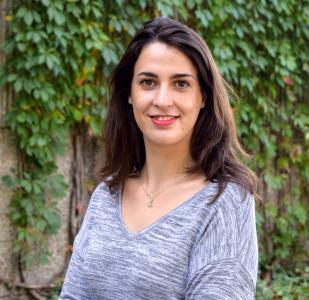 |
Audrey MartinPosition/Title: Ph.D. Candidate email: amarti52@uoguelph.ca Phone: Office: ANNU 128
|
Biography
I have an atypical educational path. In 2012, I started with a technological degree in Biotechnology from the Université Lyon 1 (France) and completed a Bachelor in Animal Breeding from the Université de Limoges (France) in 2014. As part of the professional training offered, I followed consultants (animal and crop productions) on farms to broaden my perspectives on agriculture in both France and Québec (Canada). It was during my undergraduate thesis at the Teagasc Moorepark Research Center (Ireland) that I got to work with Dr. Stephen Butler on the reproductive physiology of dairy cows and developed my passion for research.
With my newly acquired English skill, a new opportunity came up and brought me to Wageningen University and Research (Netherlands) where I started an M.Sc. in Genetics and Biodiversity in 2016. I did my major master thesis with Drs. Marinus te Pas and Henri Woelders, focusing on the genetic parts of a simulation of the dairy cattle oestrous cycle. I came to Guelph, at the Centre of Genetic Improvement of Livestock, as an exchange student for my minor master thesis. I took part in the Efficient Dairy Genome Project under the supervision of Dr. Filippo Miglior.
I started my PhD with Drs. Flavio Schenkel and Christine Baes in January, 2019.
Current work
Reproduction and fertility problems are the main cause of involuntary cullings in the dairy industry worldwide. A long-term solution is to select animals with good fertility phenotypes and genotypes so that the next generation will do better overall. As a part of the Dairy Research Cluster project aimed at improving the genetic selection in Canadian dairy cattle, my thesis focuses on fertility traits improvement. I am working on three different approaches to reach this goal:
- Estimating the non-additive genetic effects (equivalent to the gene interactions) of the fertility traits. This will allow a better estimation of the genetic values of each animal.
- Developing a new simple and direct fertility trait: a score of the reproductive tract. This trait should better reflect the biology of the cow than the currently selected traits.
- Investigating the effect of gametic compatibility on reproduction capacity. This could allow the estimation of the success rate of a specific mating.
Don’t hesitate to contact me if you want to know more about my research and/or my results!

